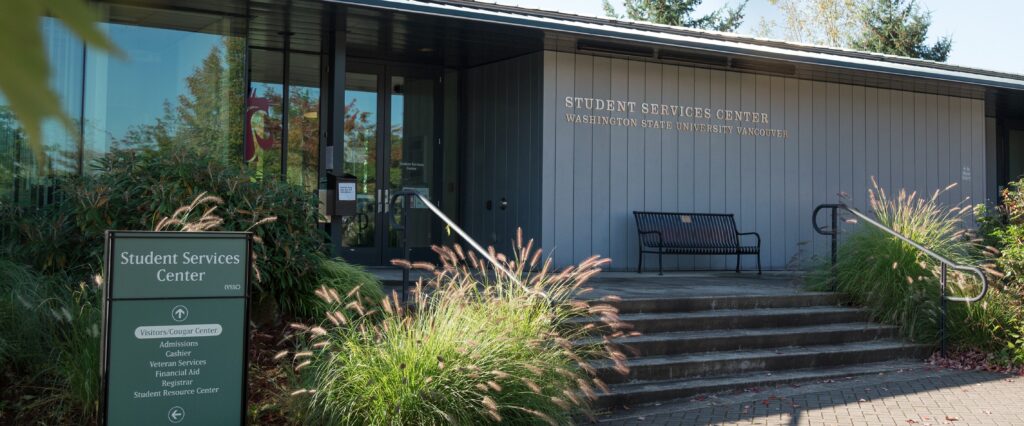Choosing to attend graduate school can be an overwhelming decision, especially with such a daunting application process. Even after acceptance, completing a graduate degree is certainly no walk in the park. Fortunately, students and faculty from WSU Vancouver are here to offer some advice when it comes to applying and getting accepted into WSU’s advanced academic programs.
Students can get assistance by scheduling an appointment with the university’s Career Services department, which provides information about different graduate schools and resources for job opportunities. Cynthia Johnston, the lead career adviser for Career Services, helps students explore different majors, take personality assessments, prepare for job interviews and apply to graduate school.
“Our whole mission is to help students with career development and to be able to manage their career outside of college, as well. I will kind of open up the doors, and open up people’s ideas of what they think an English major is, or a human development major or business,” Johnston explained.

(Photo provided by Kelsey King)
When students are unsure about graduate school, Johnston explained it is crucial to evaluate the student’s motivations behind attending to determine whether or not they should even apply. Johnston also recommends reaching out to people on LinkedIn, which she believes is a great tool for finding professionals who can share information on a specific career or graduate program. In addition to LinkedIn, reaching out to current graduate students on campus is another way to get information on graduate school.
Kelsey King, a third-year graduate student pursuing a Ph.D. in biology explained graduate students work very closely with their advisers and should establish good relationships with them. King conducts her research with Associate Professor Cheryl Schultz who specializes in biological sciences.
“How most graduate programs work, when you are doing research-based, you have to already know your adviser. So you do not want to apply to a grad program without having talked to the adviser there. … I just really liked the pieces of the project that [Schultz’s] lab was covering, and so I reached out. … It’s funny how much of grad school is making sure you and your adviser can communicate well,” King said.
In order to determine which advisers and programs are a good fit, King recommends sending out emails to possible future advisers. She also added how important it is to make the emails unique, as they should best represent you and why you are interested in an adviser’s research. Emails should also contain a resume, transcripts and Graduate Record Examination results for programs that require it.
Another student, Andrea Bazzoli, who is currently pursuing a Ph.D. in organizational psychology, recommends students determine whether or not they enjoy doing research because that will help them decide on what degree to pursue. Bazzoli also thinks students should treat graduate school very seriously and not as a last resort.

(Photo provided by Andrea Bazzoli)
“You can get into grad school at any time really. There is no age limit. … Nothing forbids you from going into a job market, finding a job and working five years and then getting a graduate degree later,” Bazzoli said.
Most graduate degrees require students to pay for tuition using loans, scholarships or paying out of pocket. However, some degrees like PhDs are funded by the college or university. Bazzoli said the general rule when looking for a Ph.D., is to look for funding through a combination of teaching or research fellowships, all depending on the program.
“There are some PhDs that require you to pay tuition, but it is a really small minority. So the general rule is, if you are looking for a Ph.D., then you most likely will be funded through a combination of either teaching assistantships, or research assistantships or fellowships. It depends on your department,” Bazzoli explained.
Pursuing a graduate degree should not be an intimidating experience. If you are interested in pursuing graduate research, or to complete a degree in a higher academic program, reach out to WSU Vancouver’s Career Services, or visit the graduate programs website to request specific information about the university’s graduate programs here.
